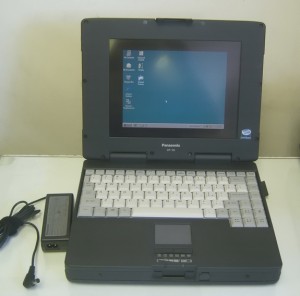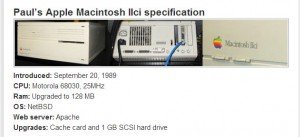Here at Computers Made Simple, we tend to collect quite a few older computers. Most are laptops, some are desktops and a few are older PDAs. Remember them? Instead of giving these old workhorses away, we like to use them for different tasks around the office. Some of the tasks are ‘works in progress’ for future articles, some are more current. Here are some ideas for your old piece of technology:
1. If all you’re doing is writing your memoirs in Word or Wordpad, you don’t need the latest and greatest computer. Even if you’re using an older version of a word processing program, you can bet that Word or LibreOffice (free) will be able to open it on your main unit. Whatever you do, make sure you have some way of getting what you write out of your old computer and into your new one.
2. We picked up an older Compaq laptop the other day. It was very overpriced, costing us $30.00, but it has a 3 1/2 inch floppy drive. Since modern computers do not come with floppy drives, we can use the older computer to access our old floppies, transfer our files to it, then connect it to our network and transfer the files to one of our other computers.
3. If you’re concerned about Internet security, you could use an older desktop as a Linux-based dedicated firewall. A router serves the same purpose but most routers are not Linux-based, although some can be changed by the user. Besides, learning about Linux and firewalls at the same time seems like a lot more fun! Here’s a link, an old one, that will give you an idea of what steps are necessary:
http://ubuntuforums.org/showthread.php?t=1061481
4. Along the same lines as number 3, you can use an old computer as a network server. If you have thousands of MP3s and you want to access them from every computer in the house, any old computer can act as a file server. (We’ve always found it amazing that two computers are able to play the same MP3 file at the same time.) Speed isn’t really a necessity. This isn’t as hard as number 3 but it is still about 7 on a tech difficulty scale. The software is free, here’s a link: http://www.freenas.org/
5. If you have a decent sound system, you can hook up an older computer as a media player, provided that you have a video card with an HDMI out. Anything that used to run Windows Vista should be able to serve as a simple media centre. We’re not talking streaming media here, only direct connection to an HD TV.
6. We’ve got a couple of old Panasonic Toughbooks around the office. One of them, a lowly Pentium 166, is tough as nails with a waterproof keyboard and a plastic covered screen as well as a hard-drive that is protected from bumps by a gel pack. All of this is packaged in a magnesium case that you could, literally, stand on and not damage the computer. What good is this old relic? Well, it runs Windows and has superb battery life, we mean hours of life, so we could slip this dinosaur into a back pack and travel across the country with it. Using Wordpad, we could write about our adventures as they happen. Alternatively, we could write our memoirs out by the pool with a cool Margarita beside us.

7. If you’ve just recently ditched a desktop that may not be quite as powerful as the modern ones, you could use it to take care of things such as video file conversion or data recovery. Both jobs take hours and frequently tie up your main computer, making it run slower than normal. Using your not-so-old computer for these chores would free up your current one. For the functions mentioned, you wouldn’t need an Internet connection, either.
8. Depending on your tech level, it is quite possible to host your own site on an older computer. Again, speed isn’t all that important. Linux has the software you need and, yay, it’s free! Check out Ubuntu or LInux Mint. If you run a small hobby site, this is a fun project. For a business, you’re better off with professional hosting. Remember, if your home power goes off, so does your website. A few years ago, we came across a site that was hosted on a very old MacIntosh. Here is a link to that site, still up and running on a computer made in 1989: http://littledork.err0neous.org/ (The ‘littledork’ is the computer’s nickname.)

9. If you have a lot of scanning to do, hook up your scanner to your old desktop and scan while you use your main computer for other things. If you set yourself up with the two computers side by side, it would be easy to switch back and forth, given that scanning (especially at hi-res) can take a long time. Again, no Internet connection is necessary.
10. While we don’t condone file-sharing, it’s easy to set up an older computer to serve as a downloading robot. Yes, your Internet connection will slow down a bit (that is adjustable), but your main computer would be free for other chores.
We’re sure you have more ideas for keeping old computers useful. Why not share them with us?
Thanks for reading!
